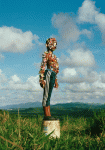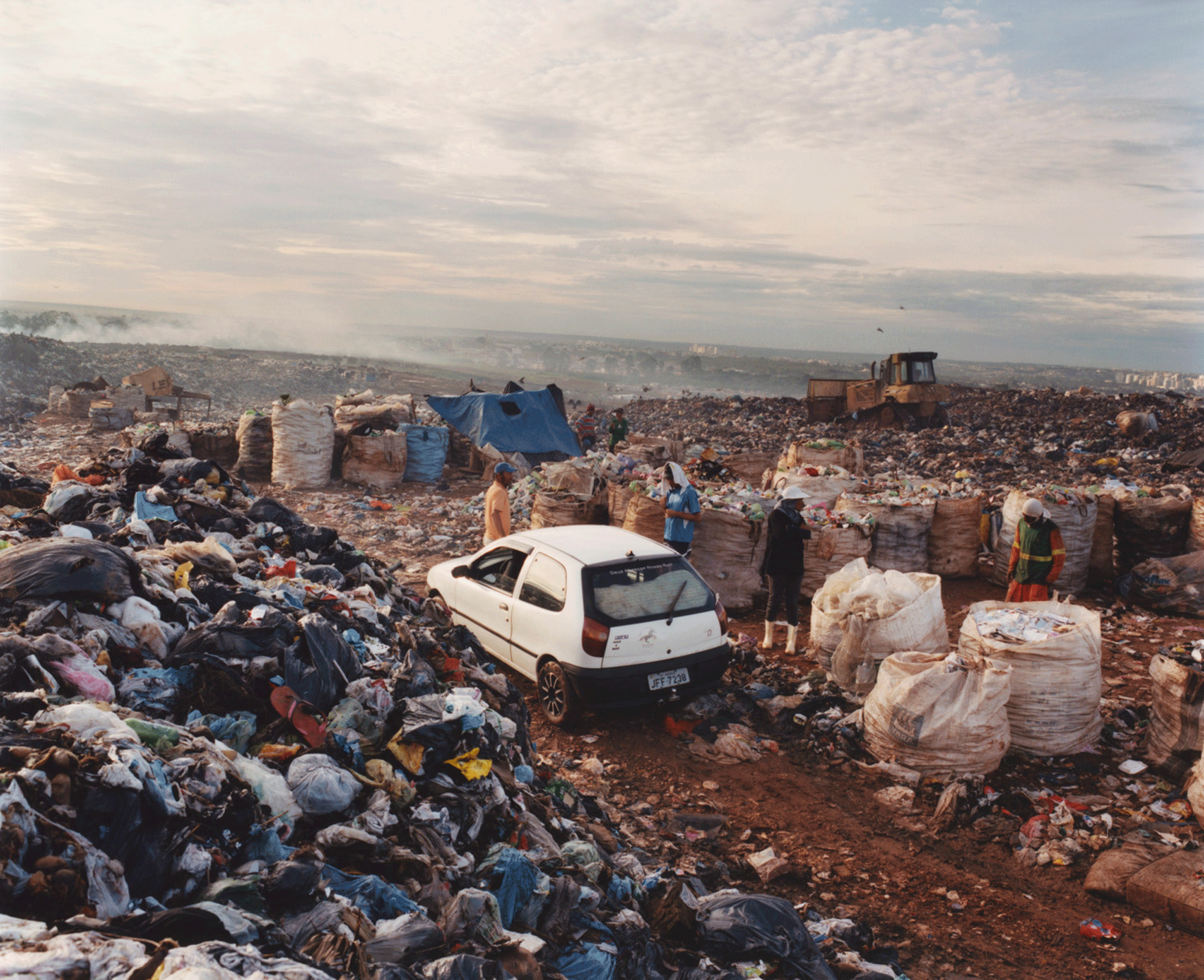Lixão da Estrutural, the largest landfill in South America, January 2018
“As consumers, it is very important to be engaged with reusing and recycling as an ethos because most of the plastic we buy will likely end up in landfill or the sea and will take hundreds of years to degrade. But aside from keeping that at the forefront of our consciousness and setting examples to younger generations, there is very little we can do to affect the bigger picture. It’s the world’s political powers that should be holding the big companies (in oil, manufacturing and retail) accountable for continuing to facilitate the production of virgin plastic. So unless we are participants in acts of civil disobedience and political lobbying, we are only really able to live by our own moral code on plastic use by thinking before we buy.”
Will Grundy
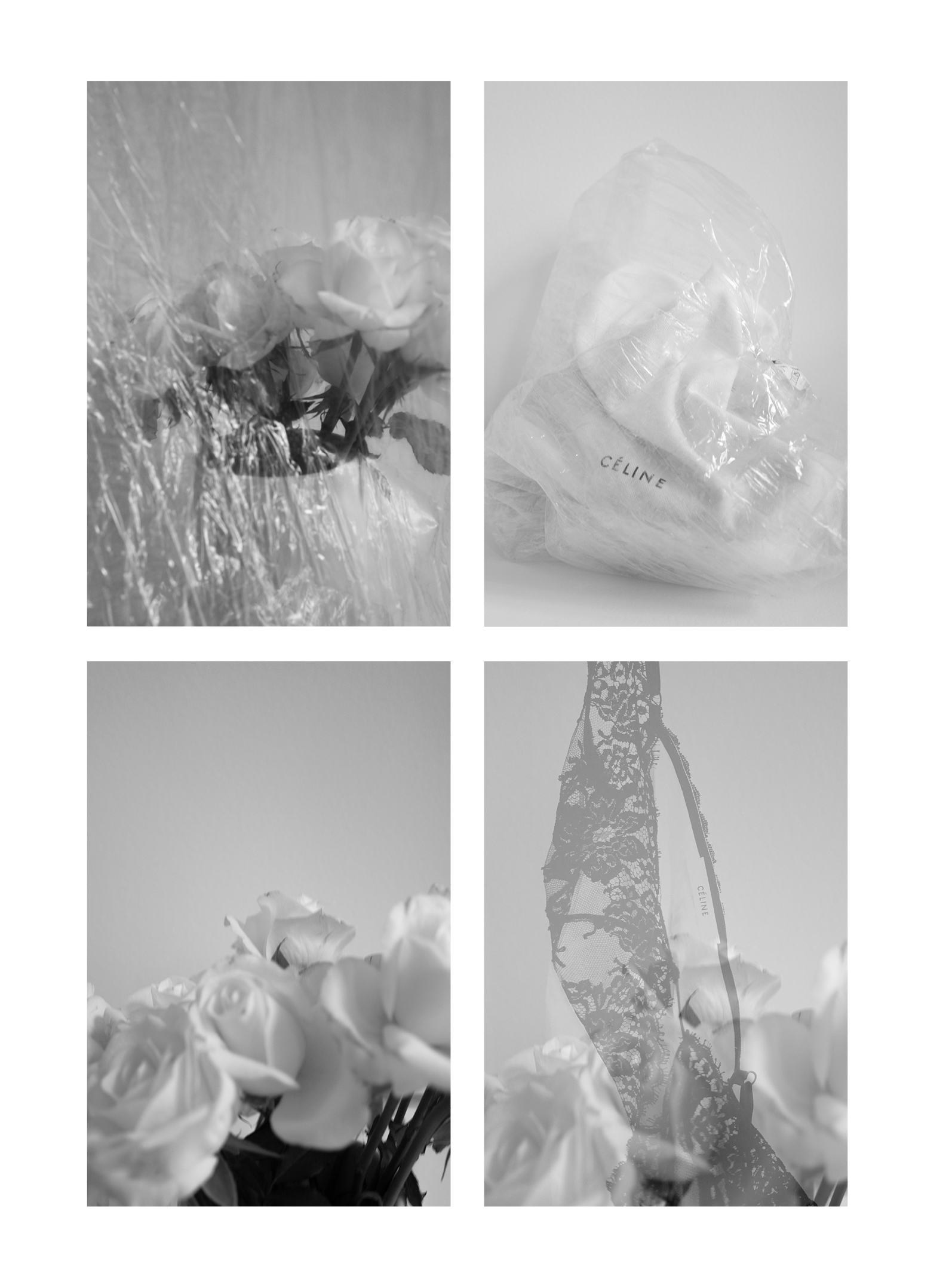
“We’re in a time where society is too concerned with the way we look, and not concerned enough about the world we inhabit.”
Bibi Cornejo Borthwick
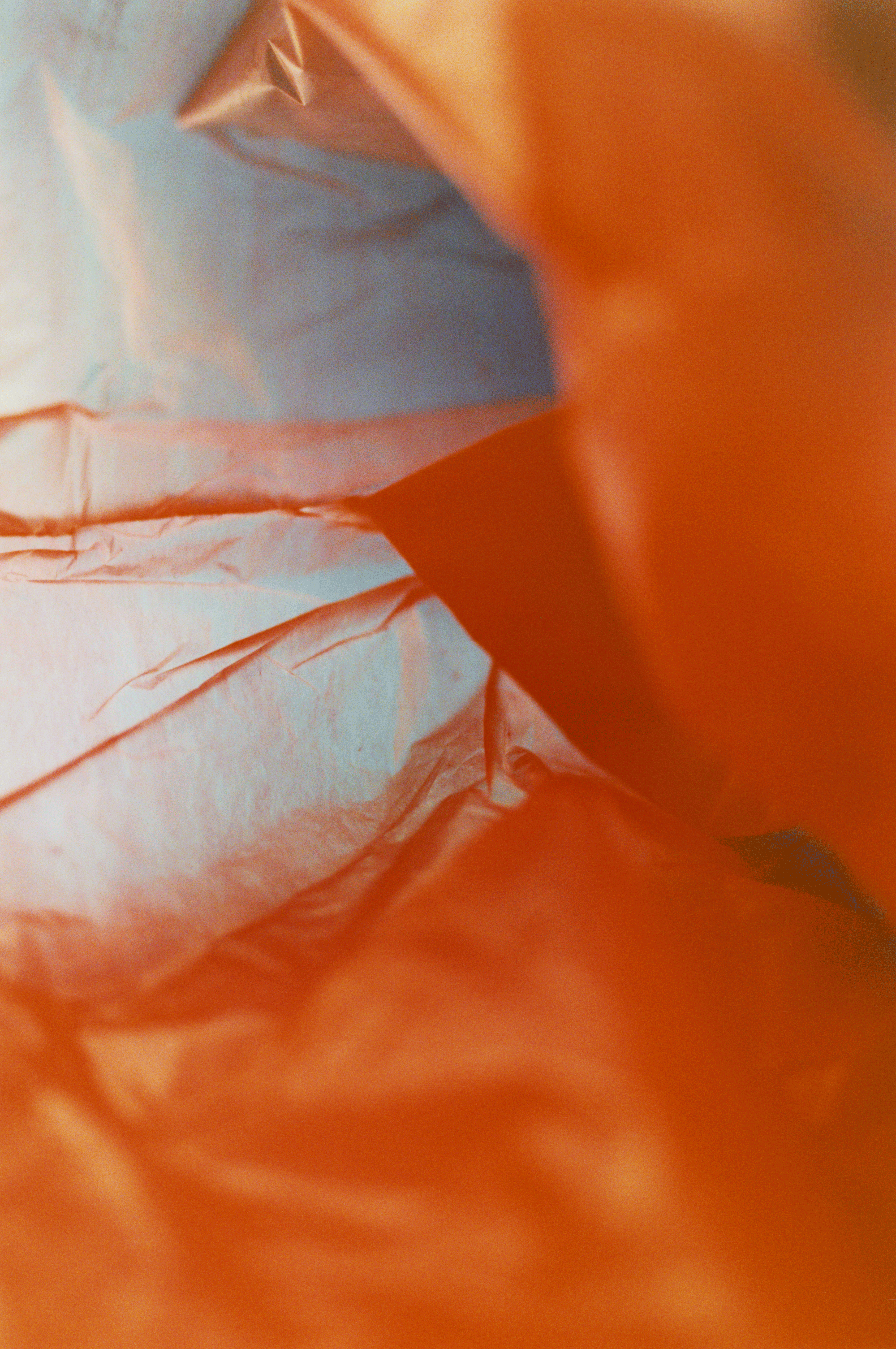
“I spent 10 years collecting and photographing plastic bags. The work was a deeply personal reflection during a difficult time. I transformed a quiet but dangerous material into abstract images that almost resemble a sanctuary. In a way that feels representative of how we got to the current situation we’re in with plastic, mass dissociation and disconnectedness. More recently, though, I’m concerned with what our current obsession with plastic may be preventing us from seeing. What other threats are we blind to?”
Michael James Fox
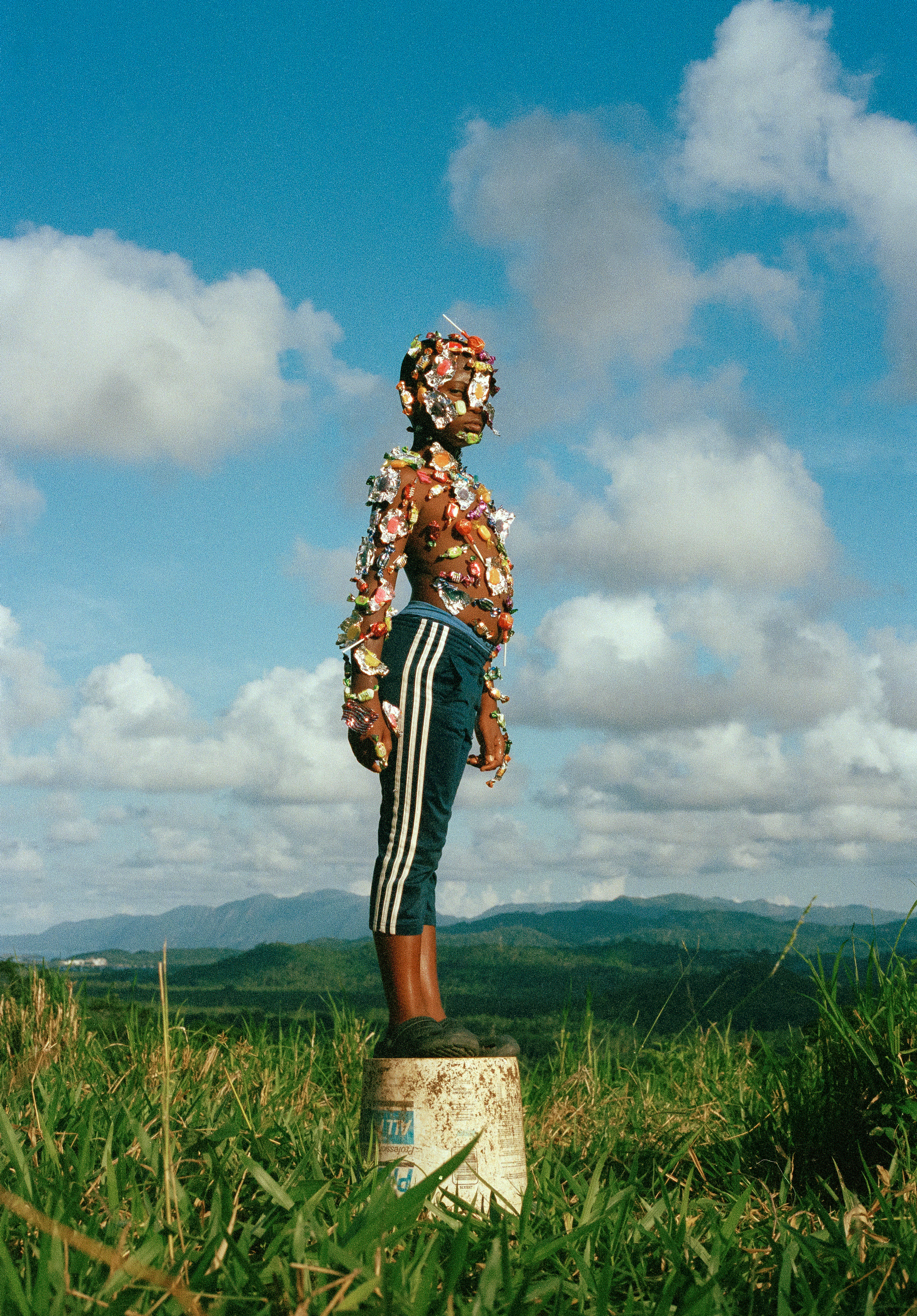
Standing Portrait of Yoelki is extracted from my ongoing series Spectacular Home. Created between my ancestral home of the Dominican Republic and Haiti, the series reflects on the nature of identity while revisiting cultural signifiers in search of corporeal emancipation.
“I read today that a dead whale was found with 6kg of plastic in its system.”
Luis Alberto Rodriguez
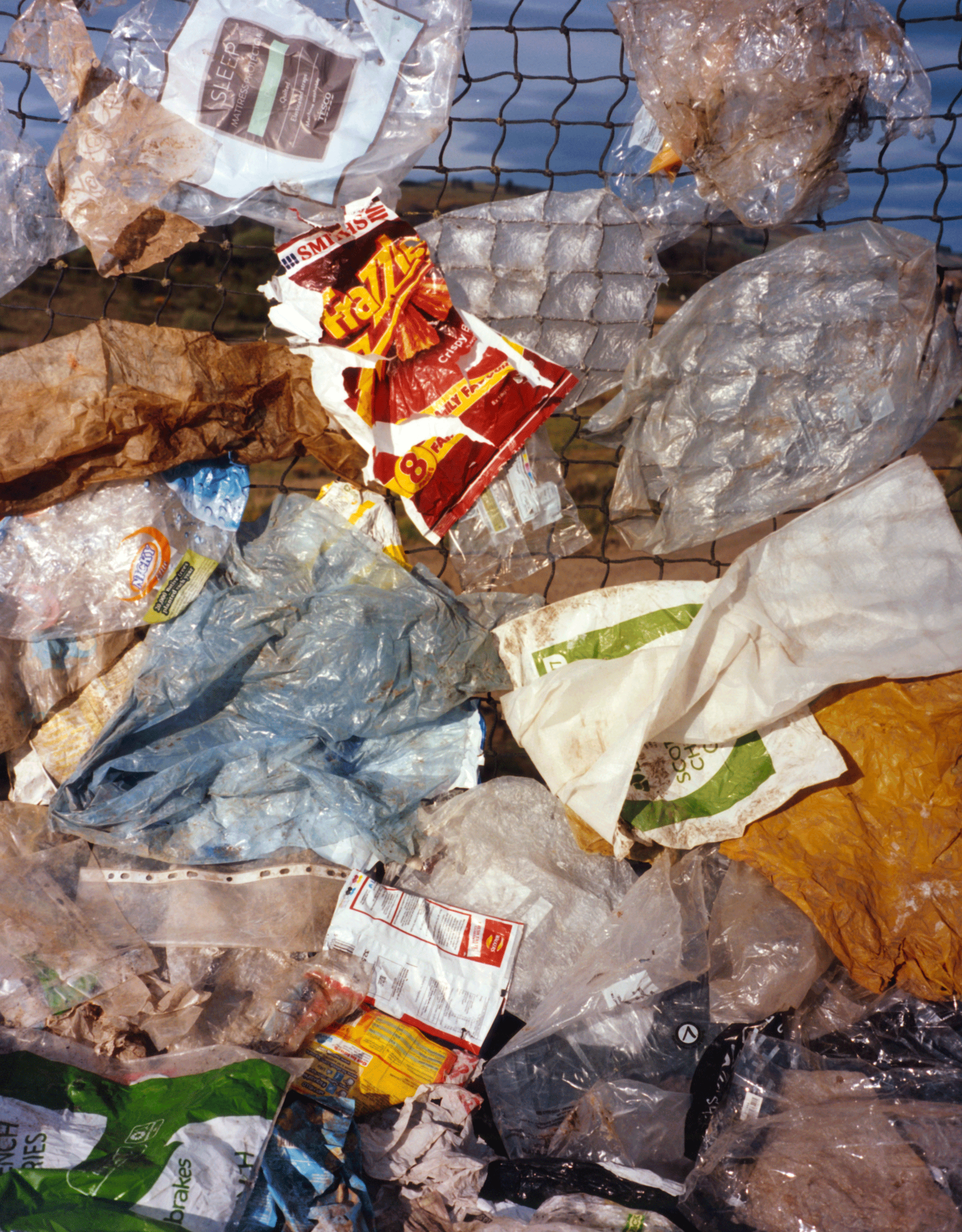
“People need to know that their change matters. However small, it counts.”
Harley Weir
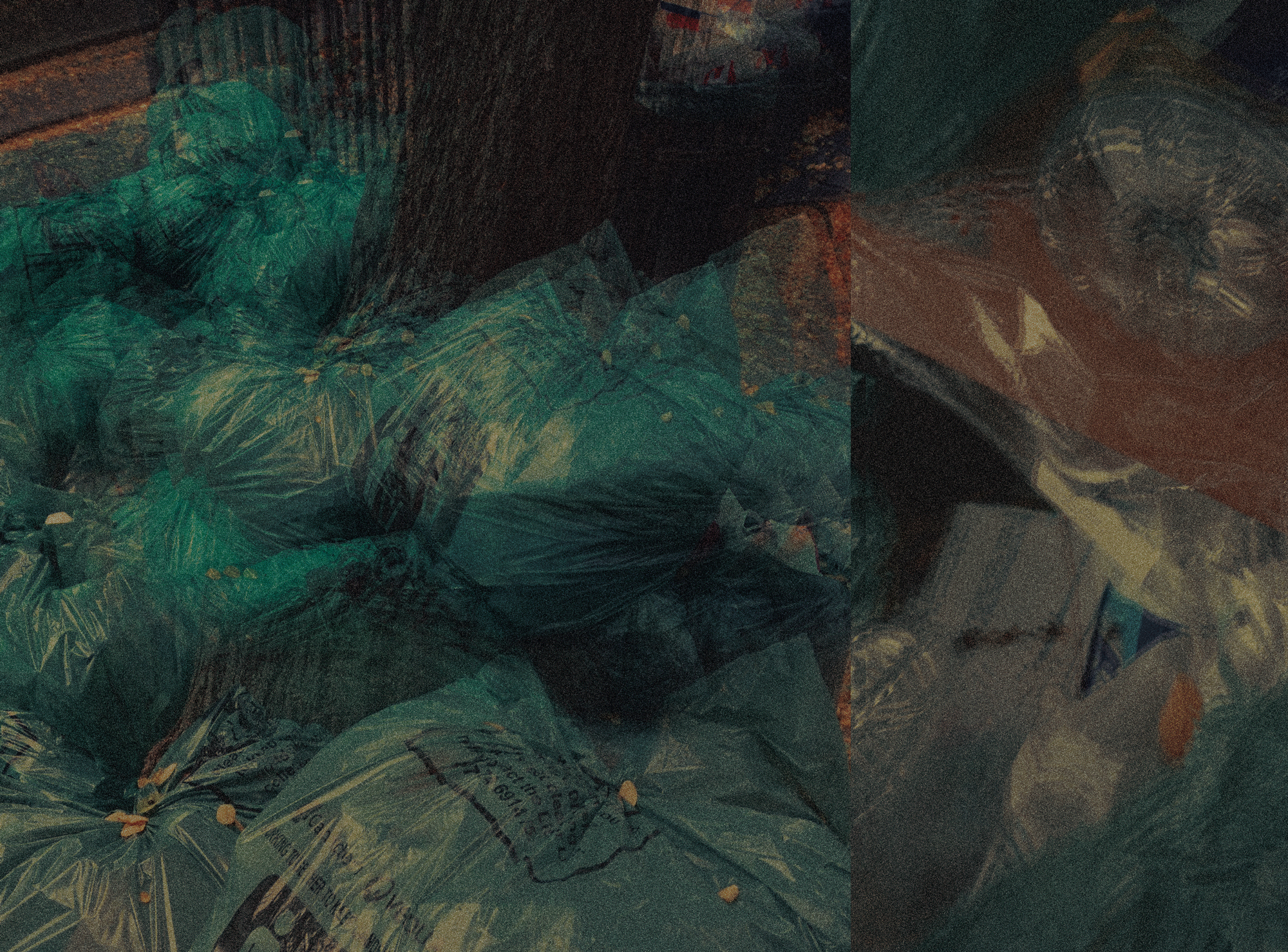
“The distorted, grainy image is a representation of how nightmarish the growing plastic problem is. Even though we think we seeing one problem, there are many layered on top, in that it’s not just the plastic we use for water, eat lunch with, carry our groceries with. It’s also what we throw them away in. And before we know it, it is and will be taking up all the space: blocking trees, pavements, roads, and everything, as shown in this image.”
Wilson Oryema

